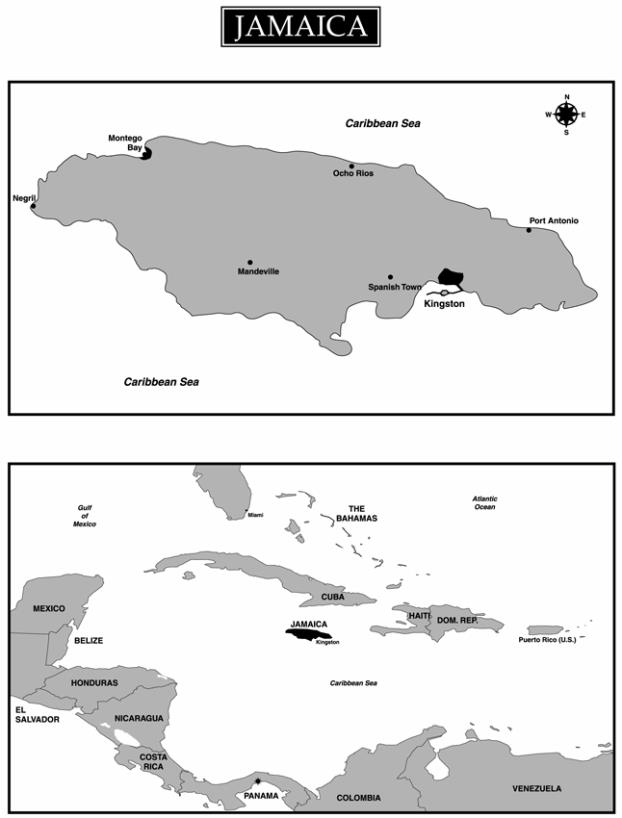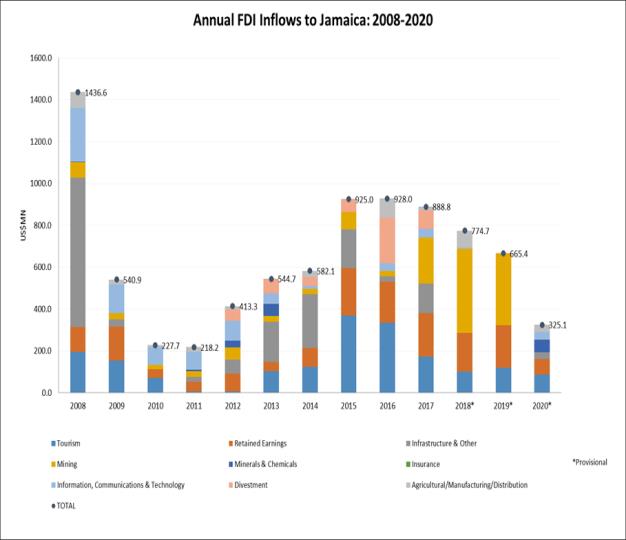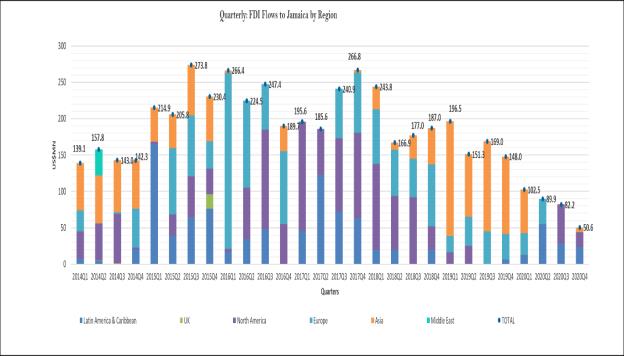The WTO provides a forum for exchanging liberalization commitments through successive rounds of multilateral trade negotiations. The current round, called the Doha Development Agenda (“DDA”), was launched in 2001 and should have ended in 2005. Limited progress has been made in the DDA to further reform multilateral trade rules. Deep divisions among WTO members on certain areas of the negotiations, including agriculture, non-agricultural market access and special and differential treatment/development, have contributed to lack of progress in the overall negotiations.
A breakthrough in the round was reached at the ninth WTO Ministerial Conference held in Bali, Indonesia, in December 2013, with the adoption of the WTO Agreement on Trade Facilitation (the “TF Agreement”). The TF Agreement entered into force on February 22, 2017, when two-thirds of the WTO membership at the time (108 Members out of 162) ratified the agreement. Jamaica ratified the agreement on January 19, 2016.
A further breakthrough in the round was reached at the tenth WTO Ministerial Conference held in Nairobi, Kenya, from December 15 – 19, 2015. The Ministerial Decision on Export Competition was adopted with a view to eliminating export subsidies in agriculture that can distort competition, such as, export credits, export credit guarantees and other types of export financing.
The 11th WTO Ministerial Conference was held December 10 – 13, 2017, in Buenos Aires, Argentina (“MC11”). The conference did not result in breakthroughs in any of the key areas in the DDA negotiations; however, Ministerial Decisions were adopted in various areas of the WTO work program, such as the fisheries subsidies negotiations, electronic commerce and the Work Progamme on Small Economies. The Ministerial Decision on the WTO Fisheries Subsidies Negotiations was an important outcome at MC11. It states that the negotiations on fisheries subsidies should be concluded by 2019, reflecting the WTO’s commitment to achieving the UN SDG 14.6, which calls for comprehensive and effective disciplines on fisheries subsidies. WTO members were not able to conclude the negotiations on fisheries subsidies by the 2019 deadline given, inter alia, the range and complexities of the issues involved. The negotiations on fisheries subsidies are underway and WTO members have set themselves the task of completing the negotiations at the twelfth session of the WTO Ministerial Conference (“MC12”) which will be held from November 30 to December 3, 2021 in Geneva, Switzerland. Consultations are being held in Geneva on the agenda for MC12.
Caribbean Community (CARICOM)
The Treaty of Chaguaramas (the “Treaty”) establishing CARICOM was signed in 1973 by four English-speaking Caribbean countries. It was subsequently signed by other countries.
Between 1997 and 2001, Member States negotiated a revision of the Treaty to expand the scope of the Common Market (the free movement of goods) by establishing a single market and economy, which would provide for four additional core freedoms: the free movement of persons/labour; services, capital and the right to establish businesses (“CSM”) in any CARICOM Member State (each a “Member State”) participating in the CARICOM Single Market and Economy (“CSME”). Consequently, the Revised Treaty of Chaguaramas (the “Revised Treaty”) establishing the Caribbean Community, including the CSME, was signed by the following Caribbean countries in July 2001: Antigua, Barbuda, Bahamas, Barbados, Belize, Dominica, Grenada, Guyana, Jamaica, Montserrat, St. Kitts and Nevis, St. Lucia, St. Vincent and the Grenadines, Suriname, and Trinidad and Tobago. Haiti later signed the Revised Treaty on July 4, 2003.The Bahamas and Montserrat signed the Revised Treaty but do not participate in the CSME. They are Members of the Community as set forth in the Revised Treaty.
In January 2006, the implementation of the provisions of the CSM was initiated by Jamaica, Barbados, Belize, Guyana, Suriname and Trinidad and Tobago. The Bahamas and Montserrat are members of the Caribbean Community, but are not participating in the CSME. A 2009 audit conducted by the CARICOM Secretariat indicates that Jamaica is far advanced in implementing its obligations under the Revised Treaty.
Additionally, the Revised Treaty provides for the establishment of the single economy, which would include the harmonization of fiscal and monetary policies and the establishment of a common currency. The single economy requires a great degree of legislative and economic policy harmonization among Member States, and covers areas in which the region has not yet been able to find policy convergence. At a CARICOM Heads of Government retreat held in May 2011, Heads of the Government agreed to consolidate the gains of the CSM “before taking any further action on certain specific elements, such as the movement towards a single currency.”
D-12


